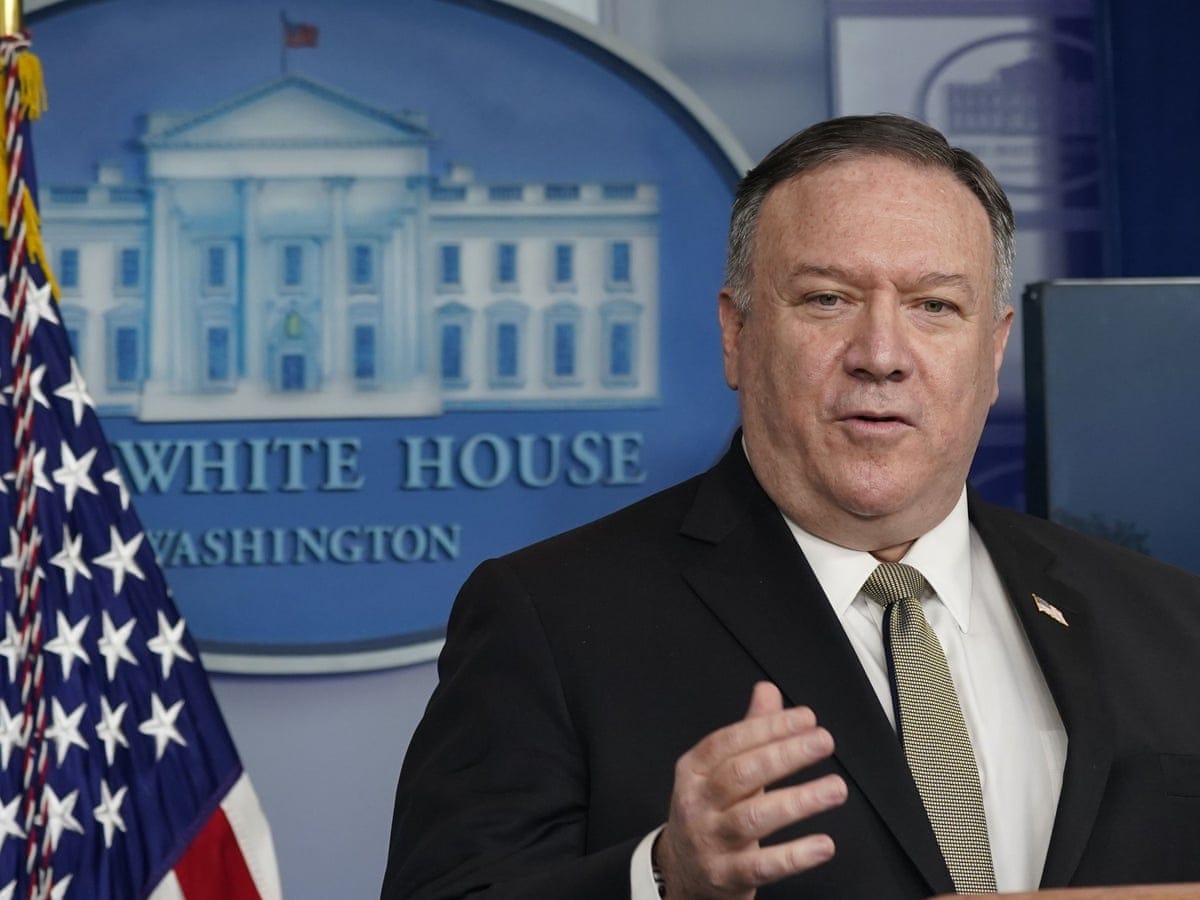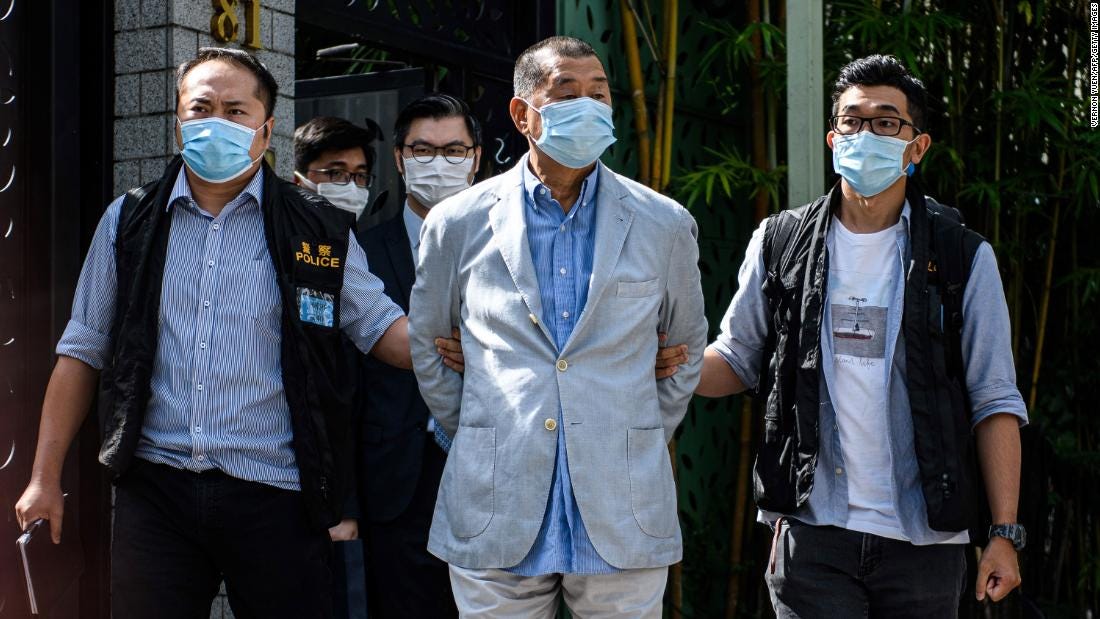Hong Kong more risky for business than mainland China?
Companies are quietly slimming down or departing
“Good luck, and goodbye.” Those were the parting words to subscribers on Apple Daily’s web site after Hong Kong officials closed the pro-democracy paper. The decision to shutter came after 500 police raided the newsroom, arrested senior editorial staff, and froze the company’s bank accounts—a Hong Kong version of a newly installed junta sending soldiers to close down an inconvenient newspaper.
Previously, Hong Kong authorities halted trading of shares of Apple Daily’s parent company and prevented the transfer or voting of the shares of Jimmy Lai, the pro-democracy paper’s imprisoned founder. Police and other authorities took all of these steps under the banner of the national security law that Beijing placed on the formerly free city. However, despite invoking the law, authorities’ recent moves were conducted without legal process. Lai has not been found guilty under the national security law and no court ordered the raid, the seizure of money, or the freezing of shares.

Officials are reportedly now contemplating arresting writers who signed their names to articles deemed insufficiently patriotic toward the ruling Chinese Communist Party. Today, these more visible reporters and opinion writers are under threat. Tomorrow it could just as easily be equity analysts who question the business prospects of state-owned enterprises or ratings agencies and accounting firms that ask too many questions about politically favored companies.
Luckily, long before the police raid, Apple Daily had moved its computer network into an offshore cloud, protecting its confidential news sources from Beijing’s handmaidens. The reporters knew what all businesses with exposure to Hong Kong should now grasp: no one located in the city and no business data accessible there is safe from the lawless authorities.
The signs of this transition from a global financial capital to a banana republic were clear to those who watched. As pro-democracy protests peaked in the summer of 2019, Rupert Hogg, the CEO of Cathay Pacific Airways, was forced to resign simply because some of his employees were expressing sympathy for the protesters. The creepy explanation for his exit in a filing by the airline: “to take responsibility as a leader of the company in view of recent events.”
Similarly, HSBC, the bank founded in 1865 that has served as a bridge between China and West was threatened by Beijing with being placed on an “unreliable entities” list. Unlike the leaders of Apple Daily, leadership of the London-headquartered bank showed as much courage as we’ve come to expect from bankers. HSBC explicitly sided with Beijing’s moves to undermine Hong Kong’s autonomy and crack down on free expression—a decision that then-Secretary of State Mike Pompeo called a “corporate kowtow.”
While seldom reported, some banks and other corporations are moving out of Hong Kong to safer financial hubs. Commerzbank and Westpac are splitting town, and others will slim down or depart. No one issues a press release when they go, but headhunters and others in the business food chain have reportedly noticed the quiet shift.
Conversely, Citigroup is doubling down on the declining city. Earlier this month, equity analysts raised the U.S.-based conglomerate’s rating for HSCB to a “Buy” and wrote in a report that HSBC’s wealth business was “under appreciated.” That seems odd with wealth leaving Hong Kong and the reality that mainland China capital either stays put or flees overseas, skipping Hong Kong. Is it possible that Citi is boosting HSBC because Citi itself recently announced it was hiring 1700 new bankers to dramatically increase its own wealth management business in Hong Kong? Would one bank talk up another to cover a kowtow?

Whatever the motive, not all financial organizations seem to have grasped that Hong Kong is finished as global financial capital, setting up a potentially painful lesson in the future. The city will decline financially, even as an oppressed but still-living dissent movement smolders beneath the surface.
In fact, it may be safer to operate on the mainland if one must be in China, given that the rules of oppression and censorship there are better understood than they are in Hong Kong. For those who don’t absolutely need to be based in China, departing for Singapore, Taipei, or New York is becoming the reality.





